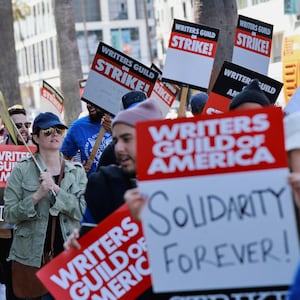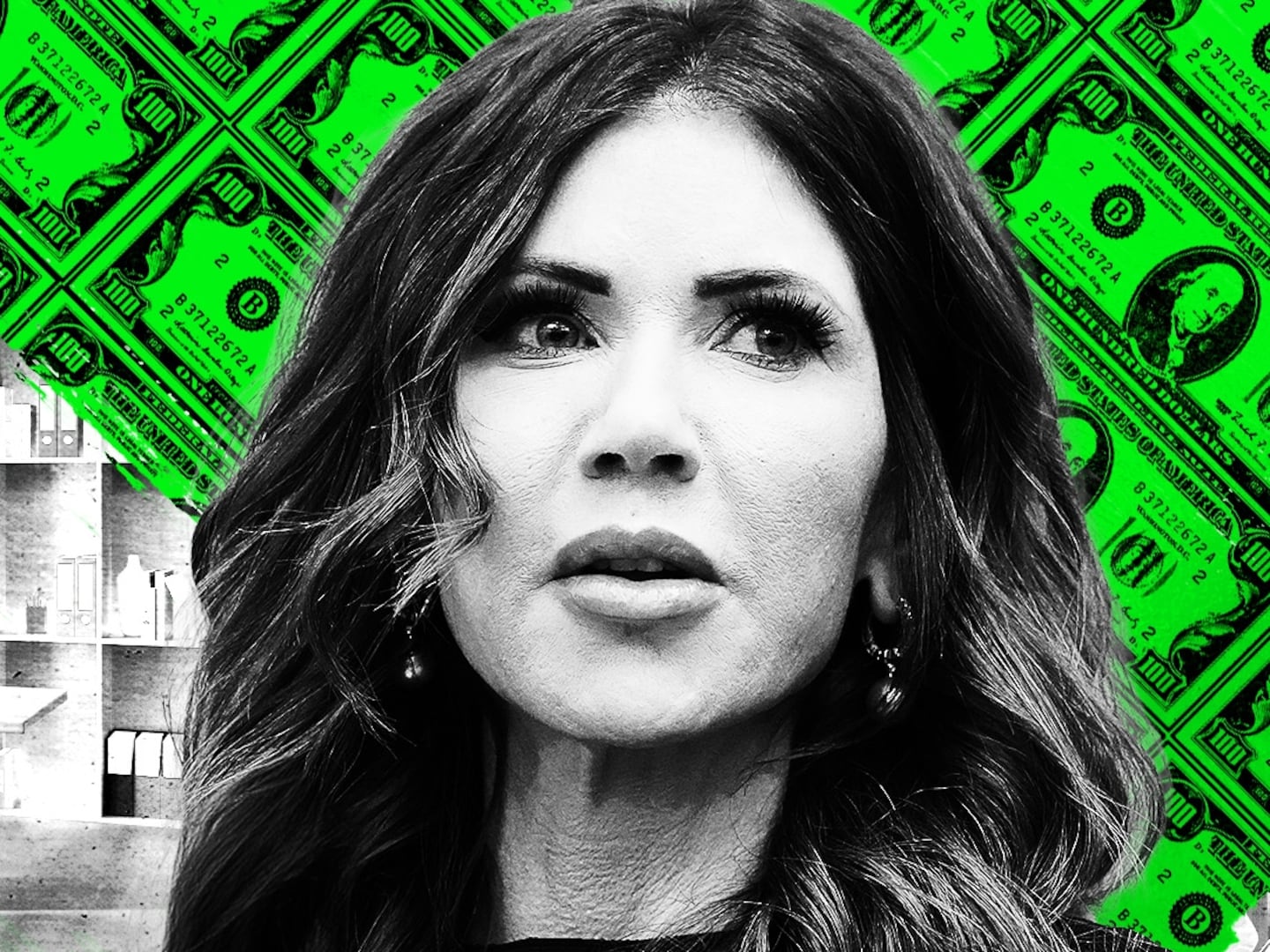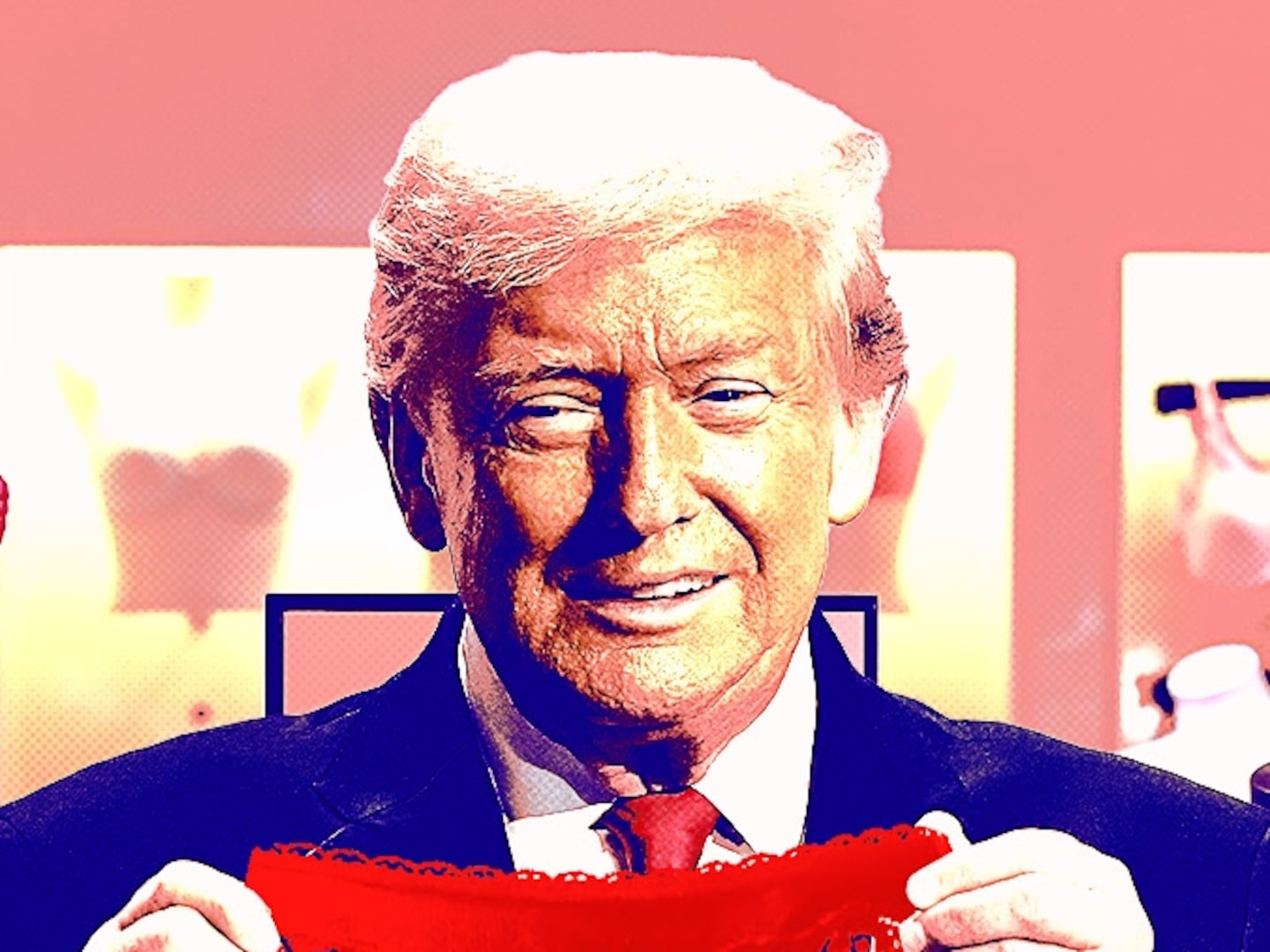Listen long enough to the Elon Musk worshippers who’ve been gumming up Twitter replies for months, and you might start believing that Hollywood is “done for” thanks to so-called “generative” artificial intelligence. If that turns out to be true, then we’ll deserve the apocalyptic ending that comes next in any predictable AI thriller.
Bellwethers of our supposedly impending AI apocalypse seem to be everywhere. It’s been years since The Verge first reported that Hollywood was using artificial intelligence to decide which projects to greenlight. This year, “Drake” and “The Weeknd” released a single that the actual human artists had never heard, thanks to an AI spoof of their voices. We got a Star Wars trailer directed by Wes Anderson, and we also endured whatever that other creepy trailer was. In February, Netflix Japan caught flak for using AI to generate background art in the face of what the company dubiously labeled a “labor shortage.” Timbaland is resurrecting Biggie via AI.
The art community warned us about those AI photo trends last winter, and already, it’s come to this.
The Writers Guild of America, on strike since May 2, is working to mitigate the potential threats that come with AI. Its proposals, which include better pay and a refined pay structure to counteract the effects of streaming, also mandate that AI cannot “write or rewrite literary material; can’t be used as source material; and MBA-covered [contract-covered] material can’t be used to train AI.” In other words, the union is working to ensure that artificial intelligence does not replace actual human workers.
The good news for human artists of all kinds is that AI art is still generally awful, or at least very limited. (And yes, various AIs have already gotten into trouble for producing racist and transphobic art.) Further, any work generated solely by AI cannot receive copyright protection—a likely turn-off for anyone invested in producing exclusive content.
A prominent writer and showrunner told The Hollywood Reporter in January that they’d tried out ChatGPT and deemed it incapable of writing a funny joke or writing anything usable without “substantial creative input” from humans. “When people conclude that this is going to replace professional writers,” the showrunner said, “I think they’re sort of swallowing an Elon Musk-style fantasy about the future that is not actually connected to the technology.”
In the same article, however, former WGA West president Howard A. Rodman cautioned that while writers should consider how AI might boost their creativity, “They should also be aware of the opportunities that it offers employers to do the thing they love best: put downward pressure on fixed costs.”
Mention Hollywood writers’ rock-bottom wages, or the potential replacement of various creative artists with machines, and you’re liable to run into a deliberately callous reply or two celebrating the hypothetical demise of “the industry” and its workers. (“Learn to code,” some might say.) The (untrue) myth that everyone in Hollywood comes from money, and that writers’ concerns are somehow separate from those of other workers, remains as potent as it is damaging. Beyond that, our society’s collective collapse in empathy doesn’t help the cause.
Even putting writers and artists aside, however, so-called “generative” AI still relies heavily on human workers—and some of them have already begun calling out exploitation within the industry.
On Monday, one day before the WGA strike began, 150 African content moderators whose labor undergirds Facebook, TikTok, and ChatGPT’s AI systems voted to unionize. Time reported that in spite of the “mental toll of the work, which has left many content moderators suffering from PTSD, their jobs are some of the lowest-paid in the global tech industry, with some workers earning as little as $1.50 per hour.”
“For too long we, the workers powering the AI revolution, were treated as different and less than moderators,” Richard Mathenge, a former ChatGPT content moderator who worked on the outsourcing company Sama’s contract with OpenAI, told Time on Monday. “Our work is just as important and it is also dangerous. We took an historic step today.”
Beyond the labor concerns that might accompany the rise of AI in Hollywood, there’s also the risk of sinking into the uncanny valley. Did anyone really love the AI-assisted de-aging in The Irishman that much? Now that James Earl Jones has retired from playing Darth Vader and signed over the rights to his voice to a Ukraine-based start-up that’s working with Lucasfilm to preserve his booming baritone forever, will every subsequent “performance” ring like a hollow echo of the real thing?
Aside from a few corporate overlords and trolls who just want to watch everything burn, who really stands to gain anything from a future in which even some of our art comes from machines—in which James Dean can be “resurrected” for a new movie? In a feature for The Guardian about the limitations of AI, artist and author James Bridle pointed out that the rise of consumer-facing AI has been a boon to tech companies—which, over the past few years, have dumped millions of dollars into selling consumers on the idea of virtual reality as “the future.”
Beyond the limitations of AI-produced art and the labor concerns that underpin it, Vox senior culture writer Alissa Wilkinson pointed out in a 2020 column that with this kind of technology, “One can easily imagine a streaming service, in the not-too-far-off future, that allows viewers to plop down on the couch, select a few variables, and generate a movie on the fly. Want a PG-13 72-minute action-comedy starring Reese Witherspoon and Adam Sandler, set in Paris with, say, a liberal bent? Click, click, click. You got it.”
It’s easy to shrug at that possibility now, but as Wilkinson points out, it could further injure our already decrepit discourse. “[I]n a world where we can fully control our own experience with art,” she wrote, “the echo chambers we often find ourselves in—what media theorist Thomas de Zengotita refers to as realities that ‘flatter’ us because they shield us from anything that might disturb or discomfit or surprise us—are only going to get more soundproof.”
For right now, however, the so-called Hollywood AI revolution (much like the “metaverse”) still mostly just feels half-baked—in need, perhaps, of a skilled, human writer to punch it up. We’d better make sure to keep at least a few of those around—and maybe pay them a living wage while we’re at it.








